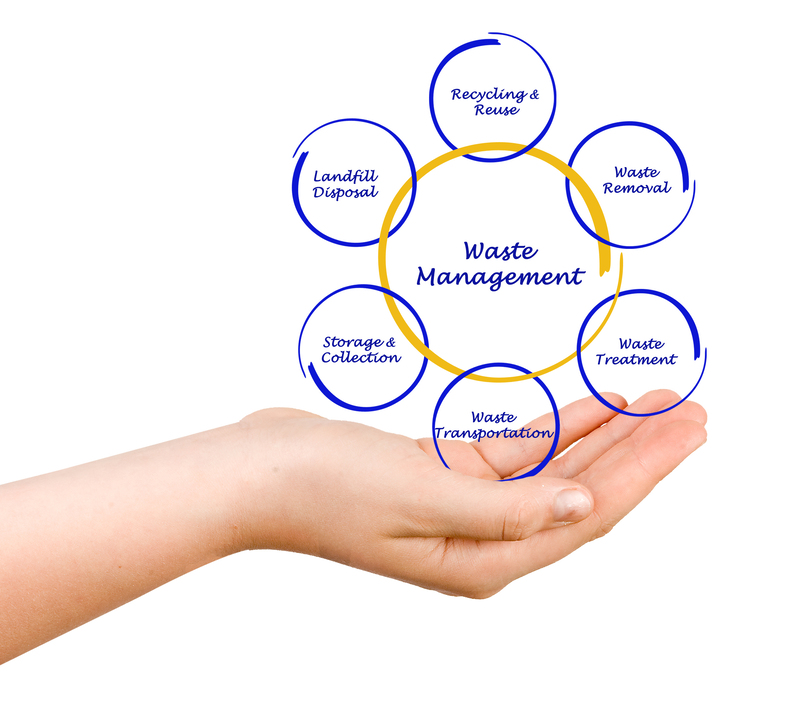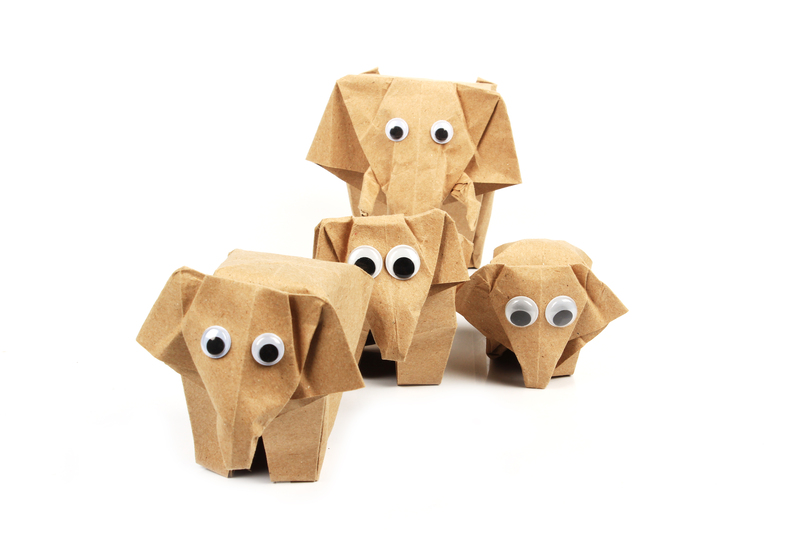Avoid Extra Expenses When Dealing with Bulky Waste Items
Bulky waste items--like old furniture, appliances, and renovation debris--can quickly become an expensive nuisance if not handled correctly. Avoiding extra costs while responsibly disposing of these large items is essential for homeowners, tenants, and businesses alike.
This comprehensive guide will walk you through smart, straightforward strategies to avoid extra expenses when dealing with bulky waste items. Learn how to recognize the best disposal options, uncover hidden fees, plan ahead, and keep your wallet safe without compromising the environment or local regulations.

Why Bulky Waste Disposal Can Get Expensive
Understanding the true cost behind bulky waste disposal is the first step to cost-effective management. Here's why improper handling can empty your pockets:
- Collection fees: Many municipalities and private companies charge extra for collecting items that don't fit in standard bins.
- Transportation costs: Renting a truck or hiring haulers increases expenses, especially with heavy objects.
- Landfill or tipping charges: Dumping large amounts of waste at landfills can incur size- or weight-specific fees.
- Penalties for improper disposal: Leaving items curbside without booking pickup can result in fines.
- Hidden or extra service fees: Some companies charge extra for carrying items from inside your home or for certain types of junk.
Recognizing the factors influencing bulky waste removal expenses gives you the power to plan properly and avoid unexpected charges.
Identifying Bulky Waste Items: What Counts as 'Bulky'?
Different waste management providers have specific lists of what qualifies as bulky. Recognizing the types will help you make effective arrangements:
- Old beds, mattresses, and box springs
- Sofas and large chairs
- Dining tables, dressers, and wardrobes
- Large appliances (refrigerators, washers, dryers)
- Outdoor equipment (grills, mowers, patio sets)
- Carpets and rugs
- Renovation debris (baths, doors, cabinets)
- Large electronics (TVs over a certain size)
Always check your local authorities' or hauler's website for a full list, as rules and accepted items vary widely.
How to Avoid Extra Expenses When Dealing with Bulky Waste Items
1. Plan Ahead and Don't Delay
Procrastination is costly. Last-minute disposal needs mean higher prices for express pickups or short-notice rentals. If you know you're clearing out or renovating, start planning waste disposal alongside your other arrangements. Get quotes early and schedule pickups to benefit from the lowest rates.
2. Sort Items: Sell, Donate, Repurpose
Not everything needs to be thrown away! Consider these alternatives before picking up the phone for bulky junk removal:
- Sell Functional Items: Websites like Facebook Marketplace, Craigslist, or local community pages are perfect for selling sofas, tables, and appliances that are still usable.
- Donate to Charity: Charities often need usable beds, furniture, and appliances. Some organizations offer free collection for larger donations--cutting your costs to zero!
- Repurpose or Upcycle: Give old items new life as garage storage, garden planters, or DIY projects, saving on disposal.
- Offer for Free: The curbside "free" sign or listings on freecycling sites are surprisingly effective in getting bulky items off your hands, especially if someone else is willing to pick them up.
This approach can drastically cut down the volume of waste, resulting in less to haul and lower disposal fees.
3. Leverage Council or Municipal Bulky Waste Collections
Most cities and towns provide free or low-cost bulky waste collection periodically or by request. Review your local authority's website to find:
- Eligibility and limits for free bulky pickups per household
- Accepted items (and exceptions)
- Collection schedules and how to book a pickup
- Proper ways to prepare items for collection
Using municipal services is usually far cheaper than private junk haulers, but slots can fill up fast--book early! Avoid unauthorized curb dumping, since some cities will fine residents for improper disposal.
4. Compare Private Hauler Prices Carefully
If local authorities won't take your items or you need expedited removal, don't settle for the first junk removal company you find.
- Get multiple quotes: Prices for the same items can vary by 50% or more.
- Check how they charge: By item, by load/volume, or by time? Understand what's included--carry-out, loading, cleanup?
- Inquire about hidden fees: Ask about surcharges for stairs, distance, or hazardous materials.
- Look for package deals: If you're removing several bulky items, some companies offer fixed-price packages for better value.
A little research can save you a lot of money and stress.
5. Pool Resources With Neighbors
Are others nearby doing their own clear-out? Team up to share costs:
- Coordinate dumpster rentals
- Pool funds for a single large pickup from a private hauler
- Organize a community bulky waste day to qualify for discounts
Bulk arrangements usually carry significant savings--ask removal companies about group rates!
6. Dispose at Local Recycling Centers Yourself
If you have access to a vehicle or trailer, delivering bulky items directly to a recycling center or landfill can be cheaper than paying for curbside pickups.
- Check fees before you go: Many centers accept some items for free, but may charge by weight, size, or specific type.
- Separate materials: Metal appliances, electronics, and clean wood may be free to recycle or even qualify as scrap for cash.
- Consider skip hire: For big projects, hiring a skip (dumpster) sometimes cuts costs versus multiple trips or pickups, especially if split among households.
Always confirm what your local facility accepts and their hours to avoid wasted trips and extra charges.
7. Break Down Bulky Items Whenever Possible
Taking apart large waste--breaking down beds, unscrewing furniture frames, removing doors from appliances--not only makes them easier to transport, but may let you fit more into a car, bin, or landfill allowance. This can help you:
- Reduce weight and volume charged by disposal services
- Fit more into your municipal bulk pickup quota
- Save on labor if charged hourly by junk haulers
Use the right tools, wear gloves, and recycle or dispose of parts separately where permitted.
8. Watch For Fly-by-Night or Illegal Dumpers
Beware of suspiciously low-cost, unlicensed "junk removal" offers. These operators may dump waste illegally, putting you at legal and financial risk:
- Ask for licensing or registration
- Request a written receipt or contract
- Check for online reviews and business details
Illegal dumping can lead to fines--even for you as the original owner--if waste is traced back. Always choose responsible, reputable services.
9. Stay Up to Date on Local Bulky Waste Programs
New recycling schemes and bulky waste programs are launched regularly by municipalities aiming to improve diversion and cut landfill costs. Join community social media groups, check council newsletters, and bookmark your city's waste webpage.
Signing up for email alerts lets you snag free or discounted collection opportunities as soon as they're announced.
10. Avoid Peak Seasons for Disposal
Demand spikes at moving season, spring cleaning, and in late summer (students moving). Disposal costs climb as a result. Plan your bulky clear-out during off-peak months if you want the best rates and more available pickup slots.
Other Smart Tips for Reducing Bulky Waste Disposal Costs
- Double Check Your Lease: Renters are sometimes entitled to one free or subsidized bulky waste collection per year. Ask your landlord or property management.
- List for "Up for Grabs: Many neighborhoods have online bulletin boards for posting items for curb pickup; neighbors haul away what they want, saving you removal costs.
- Use Social Networks: Community pages, Nextdoor, and Facebook often help in coordinating pickups, rides to the landfill, or loaning tools like dollies for heavier items.
- Check Appliance Retailer Programs: When replacing large appliances, many stores will collect and recycle the old ones for free or a small fee--definitely cheaper than hiring removal!
- Become Familiar With Hazardous Waste Rules: Some "bulky" waste--like refrigerators with coolant--needs special handling. Avoid hefty fines for non-compliance.
Your 5-Step Bulky Waste Savings Checklist
- Inventory everything you need to dispose of--note condition, materials, and size.
- Separate by disposal method: Sale, donation, recycling, curbside, special handling.
- Contact local authorities or managers about municipal collection dates, rules, and limits.
- Get at least three quotes from licensed haulers or skip companies if needed.
- Plan and schedule ahead for the lowest prices; avoid urgent or last-minute pickups.

The Environmental Bonus: Sustainable Disposal Pays Off
Saving money is important, but so is protecting the planet. Diverting bulky waste from landfills through recycling, upcycling, or donation reduces carbon footprint and landfill space. Many towns are prioritizing zero-waste strategies--sometimes offering incentives for responsible disposal.
You can do your part while also keeping your budget under control. Remember: The more items you can divert for reuse or recycling, the less you pay in disposal costs.
Conclusion: Turning Bulky Waste Headaches into Cost Savings
Managing large, unwanted items can seem overwhelming and, if mishandled, expensive. However, with planning, smart resource use, and a little research, you can avoid extra expenses when dealing with bulky waste items.
- Start early and identify your best disposal options
- Take advantage of free or subsidized municipal programs
- Reduce waste count through sales, donations, and creative repurposing
- Work with neighbors and verify all service providers are licensed and reputable
By following these cost-saving tips for bulky waste disposal, you'll clear your space, keep your cash, and help the environment all at once. Share your experience and let others know that disposing of large trash items doesn't have to mean extra expenses.
Need More Help?
Check your city's website or contact your municipality's bulky waste hotline for the latest, most accurate disposal information. Being proactive ensures you stay ahead of price hikes and unnecessary fees.
Next time you're facing a pile of oversized junk, remember: A little planning goes a long way in avoiding extra expenses with bulky waste items.